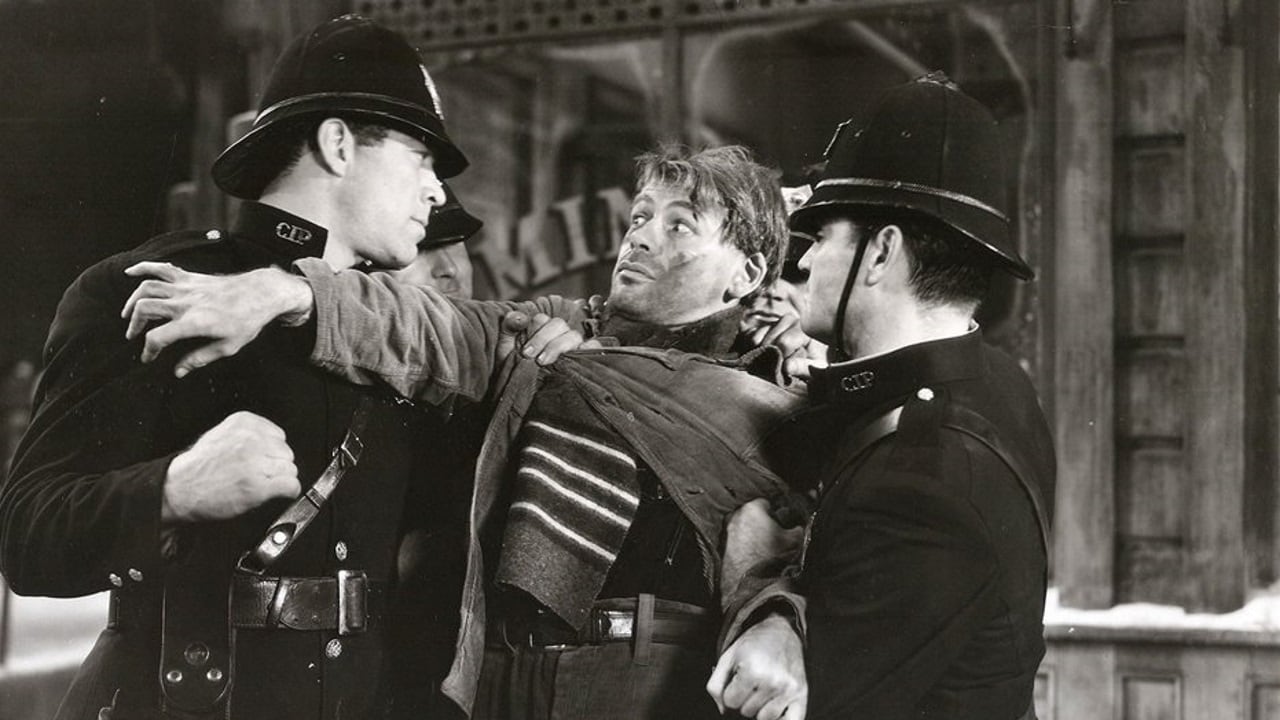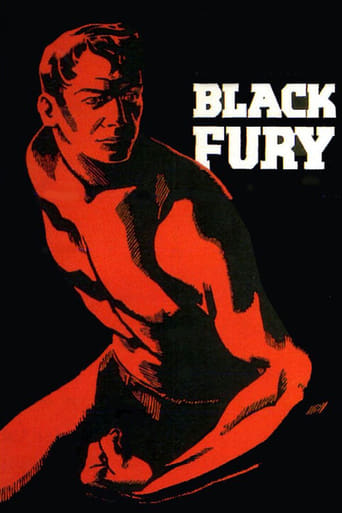ScoobyWell
Great visuals, story delivers no surprises
Humbersi
The first must-see film of the year.
Jemima
It's a movie as timely as it is provocative and amazingly, for much of its running time, it is weirdly funny.
utgard14
Joe Radek (Paul Muni) is a simple-minded, hardworking immigrant coal miner who dreams of buying a farm and settling down with his girl, Anna (Karen Morley). But when Anna leaves him for another man, Joe falls apart and takes to drinking. In Joe's current state of mind, he's manipulated by a union buster (J. Carrol Naish) into revolting against the mining company. This has disastrous results for the laborers but Joe determines to set things right by any means necessary.Paul Muni's only film with director Michael Curtiz. As was often the case with Muni, his performance can be seen either as brilliant or 100% ham. Whichever it is, I enjoyed it a lot. The cast is full of reliable Warner Bros contract players that are always fun to watch, especially great character actor J. Carrol Naish. It's not surprising this is from WB, the 1930s home of movies about the working class. Certainly interesting from a historical and sociological perspective as a view of labor issues in Depression-era America. It's also fine dramatic entertainment. Based in part on a true story of a 1929 incident at a mine in Imperial Pennsylvania.
bkoganbing
During the Thirties Warner Brothers had the reputation of being the working class studio and it was films like Black Fury that made for Warner Brothers that reputation. It was rare indeed to see another studio take stories about ordinary working people. Mostly they concentrated on the middle and upper classes because film was a form of escapism during the Depression. Black Fury coming out as it did in the middle of the New Deal was a timely reminder of the difficulties organized labor faced. Not coincidentally 1935 was the year that the Wagner Labor Relations Act was passed, an effort finally by the government to give labor some kind of equal footing with management. The need of the Wagner Act was to correct some of the abuses shown in films like Black Fury.Paul Muni plays happy go lucky immigrant coal miner Joe Radek. A man admittedly who works hard and no one thinks of as any kind of brain. He gets used good and proper by the company to stir up the miners so they will strike and give the company an excuse to lock out the union and bring in scabs.What you see with those miners living on subsistent wages in company towns was taken right from current headlines. It may be ancient history to us now, but it was very real for those people back in the day. The Pinkertons as represented by brutal and corrupt company policeman Barton MacLane had an unsavory reputation as strikebreakers and enforcers for management. That too is no exaggeration. Muni, aided and abetted by former girl friend Karen Morley now seeing the error of some of her ways, sees what a chump he's been and takes some real direct action against the employers. It's spectacular I'll tell you that.Though his acting style seems to have not worn well with some, not with me mind you, Muni was given a really rare tribute that year. His performance as Joe Radek was the second time a performer had a sustained write-in campaign for him for an acting Oscar. He finished second in the balloting to Victor McLaglen for The Informer and ahead of Mutiny of the Bounty nominees, Clark Gable, Charles Laughton, and Franchot Tone. The following year the Academy banned write-ins and that's been so ever since. Of course the following year Muni won his Oscar for The Story of Louis Pasteur.We've moved on in America from an industrial to an information based society and films like Black Fury are now part of history. But it's a history we should not forget.
sol1218
**SPOILERS** Socially minded 1935 drama involving the attempted breaking of a coal-miners union in Coaltown PA. by using underhanded tactics on the part of management. Getting a trouble-making mole, or provocateur, into the labor union the union busting racketeers plan to have the union workers go on a disastrous labor strike in order to break their previous labor contract. Thus lose all the pay and benefits that they got through labor-management negotiations over the last twenty years.The provocateur Croner, J. Carrol Nash, making himself out to be a man of the people, or working men, starts to get things going as soon as possible. Croner disrupts a union meeting with the miners there throwing away their union badges and walking out in disgust determined to form a rival union electing the very drunk and heart-broken Joe Radek, Paul Muni. Unknow to Radek he's Croner's and his boss' choice for union president. Joe's been on a drinking binge since his sweetheart Anna Novak, Karen Morley, left him for another man union company policemen Slim Johnson, William Gargan, whom she took off with for Pittsburg and a better life; Anna has this thing about a man in uniform.Joe being used by the unscrupulous and union-busting Croner & co., and with him doing their dirty work, mindlessly starts a strike that leads the mine to be shut down. With all he workers unable to support themselves and their families make the unknowing pasty Joe Radek, Croner had since taken a powder and checked out of town, the most hated man in Coaltown. Things start to get really ugly when Croner's boss Jenkins, Purnell Pratt, sends in an army of scabs protected, from the angry unemployed miners, by company police lead by his second in command McGee, Barton MacLane. This leaves the strikers no choice, since they broke their contract, but to get back to work only with them signing away their hard fought rights and making them and their families nothing but slaves and indentured servants to "The Man", Jenkins, and his band of strike breaking thugs.It's when Joe's former best friend Mike Shemasnski(John Qualen), he had since thrown him out of his home because of his involvement with the union busting Croner, was brutally murdered by McGee that he finally came to his senses and stopped drinking. With Anna also and unexpectedly coming back to Joe, Slim & Pittsburg didn't turn out to be the bargain that she thought that they would be, Joe finally took matters into is own hands.Barricading himself in the coal mine Joe had it booby-trapped with explosives. Keeping the miners from coming back to work Joe thus throws their rights benefit's and away. Joe desperately holds off McGee and his police, in fact Joe later took Mcgee hostage, until the truth came out about the Jenkins/McGee attempt to destroy the miners union and then take it over. Making the coal mine a cash-cow for themselves and a prison for those who worked there.Tension packed final as Joe puts his life on the line holding off McGee and his "boys" who tried to smoke and blast him out of the mineshaft with tear-gas and bullets. The truth is finally brought out into the open to not only the public and local miners but the entire nation of the sleazy attempt to destroy the Coaltown Miners Workers Union by Jenkins & Co. In the end even the US Government, from the President of the United States himself on down, and Federal Courts get into the mix by restoring all the rights that Jenkins and his ilk tried to take away from the miners. And yes both Joe & Anna get married at the end of the movie and live happily ever after on a farm, that Joe bought from the late Mike Shermanski, raising both pigs and a family of little Joe's and Anna's.
howdymax
This is one dreary movie. It reminds one of the images conjured up in Upton Sinclair's "Jungle". The art direction is very much early Warner Bros with emphasis on dirt and grime.It has to do with the personal descent of an ignorant bohunk miner in Coaltown. His girl runs off with a company cop, he's conned by an agitator into sabotaging the union, and when he's finally on his own personal skids, his best friend is beat to death by the goons. Geez, whatever you do, don't watch this if you're depressed. After what seems like a lifetime of self loathing, he is redeemed. His girl comes home, he avenges his best friend, and all is right with the world. Dreck.Try to imagine Paul Muni's natural accent enhanced by an affected Eastern European accent. The result sounds like Yiddish with a mouth full of marbles. Add to that his over the top acting and plenty of dirt. The usually agreeable Karen Morley just looks depressed and bored. If I were in this movie, I would be depressed and bored. The only stand out in the movie is the irrepressible Barton MacLane. I think he is one of the few actors that would have been able to get through this without some kind of medication. Of course he gets his in the end.I have the greatest respect for Michael Curtiz. In my opinion, he is one of a small club of truly gifted directors - despite his brutal reputation. He was able to create some really memorable stuff. Historical costume epics, mysteries, human dramas, and anything else they threw at him. He has never disappointed me - until now.

